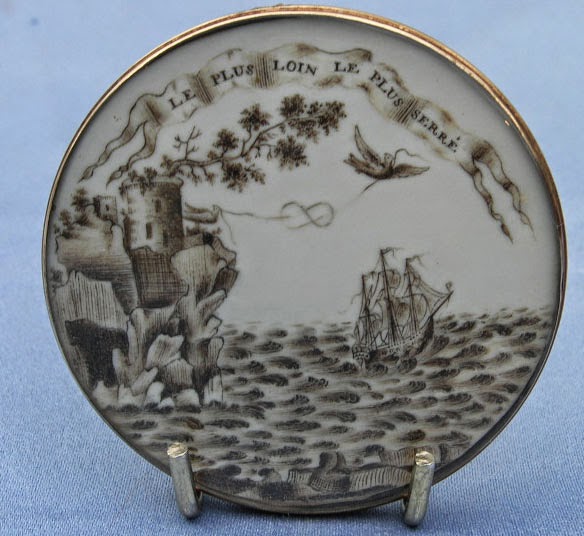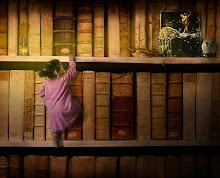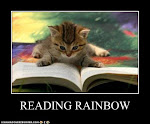I saw The Golden Compass. And.....
Well. As I alluded to - and will probably allude to for the rest of my life, since it was so awesome - I met Philip Pullman in late October. I asked him for his opinion of the film, and he very diplomatically replied thus: the casting and performances were great, and the look of the film was terrific.
I have to say: I concur with Mr Pullman on this one.
The look of the film was utterly dreamy. A gorgeous, steampunky, Victorianesque world - zeppelins, and an amazing carriage, and Lee Scoresby's balloons, and the clothing. Lyra's Oxford looks more or less the way I always imagined it - like my own experience of Oxford, which was roughly 12 jet-lagged hours in late summer, golden and dreamy and glowing and mysterious.
The casting, and the acting, is TO DIE FOR. Really, I don't think I could have done better if I'd been in charge. Sam Elliott is perhaps the best: he IS Lee Scoresby. and Kathy Bates voices the laconic Hester to perfection. Dakota Blue Richards, who plays Lyra (and has been spoken extremely highly of by Mr Pullman himself) was great as Lyra. A little sneery, a lot bold, a little afraid, a lot wary - she's a great Lyra. I particularly love that she is not too refined, too clean, too pretty, too made up (as Emma Watson is, as Hermione). She LOOKS like she could be Lyra. My Lyra isn't quite so narrow of face, but Dakota Richards has knocked this one out of the ballpark.
And then Ms Kidman, Nicole herself, as everyone's most frightening villainess: Mrs Coulter. The CGI golden monkey is a true horror, really scary and creepy. Kidman has always been my perfect casting choice for this part, and she really is astonishingly Coulteresque. There was a bit more coldness and glamour, and not enough sweetness, but otherwise: lovely.
Daniel Craig as Asriel is an acceptable decision, but he gets way too much screen time. Likewise, Eva Green makes a lovely Serafina Pekkala, though I always pictured her as fair-haired, but felt a little too stagey at one or two moments. The gyptians were pretty great, though John Faa was less dignified, and Farder Coram less frail, than in the text.
Iorek Byrnison is another marvel of CGI work, but I cannot feel great about Ian McKellen voicing him. McKellen's a marvellous actor with a wonderful voice, but there's something a little too slushy for Iorek. Iorek's voice ought to be clean, deep, sharp, cutting. At times, McKellen sounds just a bit too slushily old for the part.
The actual story - well, I knew they'd take liberties, but frankly, I'm DEVASTATED by the conclusion. The permanence of the intercision is glossed over, and the interiors of Bolvangar made me think of Tim Burton's Charlie & the Chocolate Factory in a way that jarred rather unpleasantly. Characters are collapsed, or removed: Martin Lanselius, the consul at Trollesund, disappears, and the information he reveals is instead told by Scoresby and Serafina. I've always been very partial to that chapter of the book - the consul and the bear - but I can see why this needed doing. The Magisterium becomes much more of a presence, in a very unnecessary way, and we get a very dumb extended scene of Asriel being captured, in which he comes off as something much less than the strong, authoritative, proud man he really ought to be.
But the film is truly beautiful to look at. It can't help that NO film could ever capture the lyricism and emotional truth of the novel. How could any image say : "That was intercision, and this was a severed child"? How could any image convey the heartbreaking horror of Lyra's encounter of Tony Makarios in that fish-house? Or the complicated, bewildering themes of Iofur Raknisson's wish to be what he is not? (Iofur gets a name change, by the way - he becomes Ragnur or something, I suppose to avoid aural confusion with Iorek).
The golden compass itself is perhaps my LEAST favorite part. Lyra's ability to read the alethiometer comes slowly, gradually, with work - that chapter is titled "Frustration." It brings with it responsibility, weariness and awe, all of which the film dispenses with. Everyone continually refers to it as The Golden Compass, which is merely a descriptor in the text, not a name it's known by. And the gimmick of golden swirling d(D)ust as Lyra deciphers the alethiometer was appalling. Part of why the alethiometer works as a literary device is that it is mysterious; Lyra goes into a trance, and we NEVER know what she's seeing until she attempts to verbalize it. I've never imagined her readings to be a series of images, but something more....ephemeral. impressions, feelings, senses, not photographs.
The film's ending is a travesty. that is all i shall say about that. If new line decides to film the following two books, I should like to be Creative Consultant. I can't quite see how they'll dig themselves out of the ending satisfactorily, but - hey. who knows? in hollywood, anything is possible. I think a more sensitive director would have done a better job - someone more attuned to the glory of the book(s).
I do have to say, when Iorek and Iofur/Ragnur fight, and Iorek wins, the audience I watched with broke into applause and cheers.
I really will stick with the books on this one: they have an elegance, a beauty and a truth that no film could ever translate.
Tuesday, December 04, 2007
Sunday, December 02, 2007
The Golden Compass
I'm teaching THE GOLDEN COMPASS this week, in addition to this being the release week of the film adaptation - so lucky me! I get to re-read The Golden Compass.
I've just finished Part One (Oxford). I've read these books - oh, easily eight times or more - since first encountering them in late 2001. And reading now, with an eye toward teaching, I'm again simply caught up in the gloriousness of Pullman's prose. Every page is absolutely lyrical (as well as being Lyracal). Not a word misplaced, nothing extraneous, it all just pulls you along beautifully.
I love titles, it turns out. And the titling in this book gives me chills. Just reading BOLVANGAR in solid black type makes me shiver. "The Consul and the Bear." "Armor." "The Decanter of Tokay." Ooooh! it all just raises goosebumps for me, even after so many readings.
There's just such an emotional richness and depth to the novel; the way Farder Coram and Lyra react to the alethiometer's power - with fear, with awe, with wonder - is so true, and so real, you wonder how anyone could respond otherwise.
I'm very much looking forward to the film, because it looks to have a wonderful visual aesthetic - steampunky, victorian, beautiful. I'm nervous because every adaptation takes away something, as well as adds something. Nothing can replace the text, because for me so much of the pleasure of these books is in the language.
I've been reading Dickens - David Copperfield (a re-read), and Little Dorrit for the first time. I'm finding Little Dorrit utterly baffling thus far, but both books have that gorgeous richness of language and life that Dickens does so well. And it's a similar richness that I find in Pullman's books. It's so easy to fall into the story of it, but I never forget for a moment the beauty of the language, the way ideas, words, meanings are strung together so carefully, so delicately.
There is more that is true in His Dark Materials than in almost anything else I've ever read. Henry James, maybe, and maybe Dickens - both of those authors have so much that is true in their works. But the story, the plotting, of Pullman's novels just draws me in and in such an aching way. My book group students said that the books were "such a journey," and that phrase has always felt cliched to me; but in this instance, it's utterly true. The characters travel so far and so wide and so deeply inside themselves, and you - the reader - HAVE to go with them. so by the time you reach the final page of the final book, you're as exhausted as if you'd travelled to Svalbard, to Nova Zembla (the name thrills me to my core!), to Cittegazze, to Oxford, to the suburbs of the dead, to the abyss, and back again.
I had the unspeakable honor and privilege of meeting Philip Pullman this Halloween, an evening that will forever live in my memory as a dazzling, dreamlike occasion on which I behaved like a total fangrrl. I desperately wanted to be urbane and charming and witty and brilliant, but I was more like a gasping fish out of water. The Fact that Mr Pullman himself is wonderfully kind, gracious, generous and intelligent made me feel even more fish-gaspy.
But my dream of the past six years - to shake his hand and tell him how much I love these books - has been accomplished. Now I need to get to Oxford, so i can see those dreaming spires for myself in more detail.
It's funny: it isn't so much that His Dark Materials has helped me know about myself; I don't know that I'd say these books changed my life - though they have but in a way I'm not sure any other book ever has. The absolute, total beauty of these books is what it is - it's look I've stared at - for hours, in a bright, clean light - the most beautiful object in the world. You can't be unchanged by being in the presence of that kind of gorgeousness, but I don't know (yet) what the changes are. All I know is that I feel absolutely swept up, moved, shaken, thrilled when I read these books; I feel like my heart and eyes and mind are wide, wide open, and are seeing and experiencing things that cannot be described.
I've just finished Part One (Oxford). I've read these books - oh, easily eight times or more - since first encountering them in late 2001. And reading now, with an eye toward teaching, I'm again simply caught up in the gloriousness of Pullman's prose. Every page is absolutely lyrical (as well as being Lyracal). Not a word misplaced, nothing extraneous, it all just pulls you along beautifully.
I love titles, it turns out. And the titling in this book gives me chills. Just reading BOLVANGAR in solid black type makes me shiver. "The Consul and the Bear." "Armor." "The Decanter of Tokay." Ooooh! it all just raises goosebumps for me, even after so many readings.
There's just such an emotional richness and depth to the novel; the way Farder Coram and Lyra react to the alethiometer's power - with fear, with awe, with wonder - is so true, and so real, you wonder how anyone could respond otherwise.
I'm very much looking forward to the film, because it looks to have a wonderful visual aesthetic - steampunky, victorian, beautiful. I'm nervous because every adaptation takes away something, as well as adds something. Nothing can replace the text, because for me so much of the pleasure of these books is in the language.
I've been reading Dickens - David Copperfield (a re-read), and Little Dorrit for the first time. I'm finding Little Dorrit utterly baffling thus far, but both books have that gorgeous richness of language and life that Dickens does so well. And it's a similar richness that I find in Pullman's books. It's so easy to fall into the story of it, but I never forget for a moment the beauty of the language, the way ideas, words, meanings are strung together so carefully, so delicately.
There is more that is true in His Dark Materials than in almost anything else I've ever read. Henry James, maybe, and maybe Dickens - both of those authors have so much that is true in their works. But the story, the plotting, of Pullman's novels just draws me in and in such an aching way. My book group students said that the books were "such a journey," and that phrase has always felt cliched to me; but in this instance, it's utterly true. The characters travel so far and so wide and so deeply inside themselves, and you - the reader - HAVE to go with them. so by the time you reach the final page of the final book, you're as exhausted as if you'd travelled to Svalbard, to Nova Zembla (the name thrills me to my core!), to Cittegazze, to Oxford, to the suburbs of the dead, to the abyss, and back again.
I had the unspeakable honor and privilege of meeting Philip Pullman this Halloween, an evening that will forever live in my memory as a dazzling, dreamlike occasion on which I behaved like a total fangrrl. I desperately wanted to be urbane and charming and witty and brilliant, but I was more like a gasping fish out of water. The Fact that Mr Pullman himself is wonderfully kind, gracious, generous and intelligent made me feel even more fish-gaspy.
But my dream of the past six years - to shake his hand and tell him how much I love these books - has been accomplished. Now I need to get to Oxford, so i can see those dreaming spires for myself in more detail.
It's funny: it isn't so much that His Dark Materials has helped me know about myself; I don't know that I'd say these books changed my life - though they have but in a way I'm not sure any other book ever has. The absolute, total beauty of these books is what it is - it's look I've stared at - for hours, in a bright, clean light - the most beautiful object in the world. You can't be unchanged by being in the presence of that kind of gorgeousness, but I don't know (yet) what the changes are. All I know is that I feel absolutely swept up, moved, shaken, thrilled when I read these books; I feel like my heart and eyes and mind are wide, wide open, and are seeing and experiencing things that cannot be described.
Subscribe to:
Posts (Atom)



